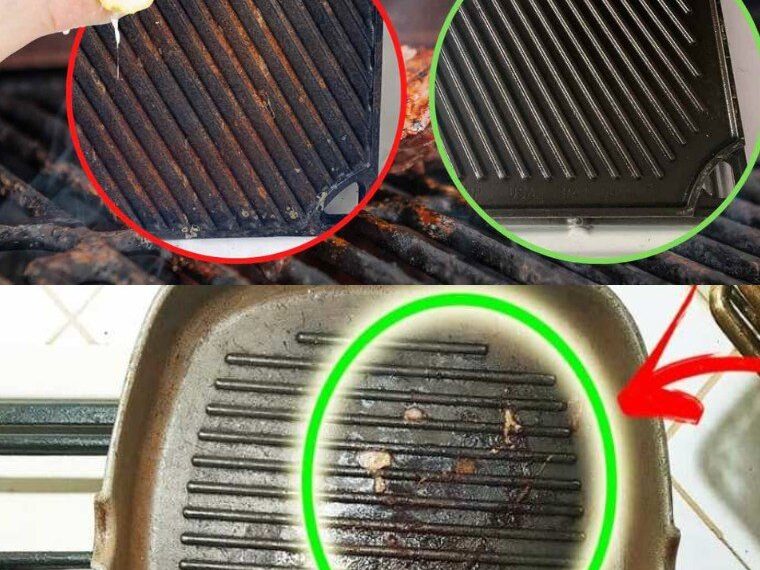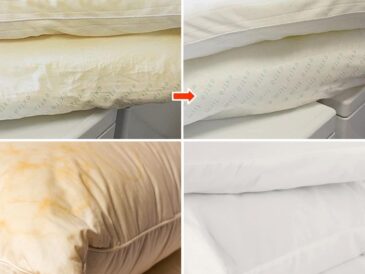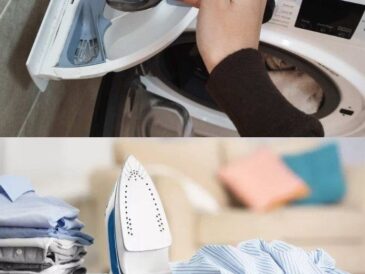Step 1: Heat the Pan
- Place the grill pan on the stove over medium heat.
- Allow the pan to warm up slightly—this helps loosen stuck-on residue.
Step 2: Prepare the Lemon
- Cut a fresh lemon in half.
- Squeeze the juice over the grill pan, ensuring it covers the entire surface, especially the areas with heavy buildup.
Step 3: Use the Lemon as a Scrubber
- Take one of the lemon halves and rub it directly onto the grill grates or the surface of the pan.
- Use the natural abrasive texture of the lemon rind to scrub off grime.
Step 4: Add Extra Power (Optional)
- For stubborn residue, sprinkle coarse salt or baking soda onto the pan before scrubbing with the lemon.
- The combination of acid and abrasiveness works wonders on tough stains.
Step 5: Let It Sit
- Allow the lemon juice to sit in the pan for 5–10 minutes. This gives the acid time to break down grease and residue.
Step 6: Rinse and Wash
- Rinse the pan with warm water to remove the lemon juice and loosened debris.
- Use a sponge or soft-bristle brush to give the pan a final scrub. Avoid harsh scouring pads, which can damage non-stick surfaces.
Step 7: Dry and Season (If Needed)
- Dry the pan thoroughly with paper towels or a clean cloth.
- If your grill pan is made of cast iron, lightly oil it to prevent rust and maintain its seasoning.
Additional Tips for Maintaining a Clean Grill Pan
- Clean Immediately After Use: Cleaning your grill pan while it’s still warm prevents residue from hardening.
- Avoid Soaking for Long Periods: Prolonged soaking can damage certain materials, like cast iron or enamel.
- Use Wooden or Silicone Tools: To scrape off food particles, avoid metal tools that can scratch the surface.
- Season Cast Iron Regularly: For cast iron grill pans, apply a thin layer of oil after each cleaning to maintain a non-stick surface and prevent rust.
- Deep Clean Occasionally: For stubborn buildup, use a paste of baking soda and water or a vinegar soak for deep cleaning.
Why This Technique Works
The natural acidity of lemons effectively cuts through grease, loosens burnt-on food, and neutralizes odors, making it a safe and eco-friendly alternative to chemical cleaners. Paired with coarse salt or baking soda, this method also provides gentle scrubbing power without damaging the pan’s surface.
Conclusion
Cleaning a grill pan doesn’t have to be a daunting task. With the power of lemons and a little elbow grease, you can easily restore your pan to its original shine and keep it in great condition for years to come. The next time you’re faced with a stubborn mess, try this simple lemon technique—you might never go back to store-bought cleaners again!




